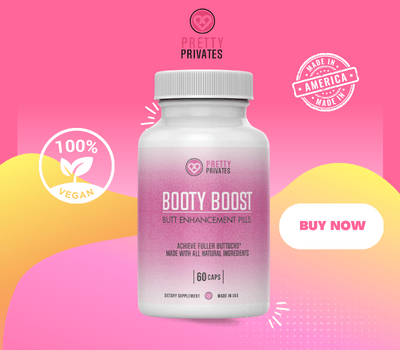The Essential Vitamins and Supplements for Women's Health

You take care of everyone around you, but when was the last time you took care of yourself? In our fast-paced world, it’s easy to put our own health on the backburner. But as a woman, it’s important to give your body the support it needs to stay strong and vibrant.
That’s why we’ve put together a guide on the essential vitamins and supplements every woman should be taking. From boosting immunity to improving bone health and promoting overall wellness, these essential nutrients will help you take back control of your health and live your best life. So let’s dive in and discover how these vitamins and supplements can empower and nourish your body.
Vitamin A
Vitamin A plays a crucial role in maintaining good health and promoting optimal bodily functions. It is known for its numerous benefits and is an essential vitamin for women.
Let’s dive deeper into the benefits, recommended daily intake, natural sources, and potential risks and side effects of Vitamin A.
Benefits of Vitamin A
Vitamin A is known for its wide range of benefits. It plays a vital role in promoting good vision, especially in low light conditions. It also contributes to the health of your skin by promoting cell regeneration and maintaining its overall integrity. Additionally, Vitamin A supports a healthy immune system, which is essential for fighting off infections and diseases. Furthermore, this vitamin is crucial for the proper development and functioning of various organs, including the heart, lungs, and kidneys.
Recommended Daily Intake
The recommended daily intake of Vitamin A varies depending on age and gender. For adult women, the recommended daily intake is 700 micrograms (mcg) of retinol activity equivalents (RAE). It’s important to note that pregnant and breastfeeding women may require higher amounts of Vitamin A. It is always advisable to consult with a healthcare professional to determine your specific needs.
Natural Sources of Vitamin A
Getting enough Vitamin A from natural food sources is highly recommended. One of the best sources of Vitamin A is liver, particularly beef or chicken liver. Other animal-based sources include fish, dairy products, and eggs. If you follow a vegetarian or vegan diet, you can obtain Vitamin A from plant-based sources such as sweet potatoes, carrots, spinach, kale, and red bell peppers.
Potential Risks and Side Effects
While Vitamin A is crucial for maintaining good health, excessive intake of this vitamin can have adverse effects. Consuming too much Vitamin A from supplements or fortified foods can lead to a condition called hypervitaminosis A. Symptoms may include nausea, dizziness, hair loss, and even organ damage. Pregnant women should be cautious, as high doses of Vitamin A can be harmful to the developing fetus. It is always wise to consult a healthcare professional before starting any new supplementation regimen.
B Vitamins
B Vitamins are a group of essential nutrients that play a vital role in maintaining overall health, especially for women. Let’s explore the different types of B Vitamins, their benefits for women, recommended daily intake, natural sources, and potential risks and side effects.
Types of B Vitamins
There are eight B Vitamins that are collectively referred to as B-complex vitamins. These include Thiamine (B1), Riboflavin (B2), Niacin (B3), Pantothenic Acid (B5), Pyridoxine (B6), Biotin (B7), Folate (B9), and Cobalamin (B12). Each B Vitamin has its own unique set of functions and benefits.
Benefits of B Vitamins for Women
B Vitamins are essential for women’s health for several reasons. They play a crucial role in energy production, helping convert food into energy that the body can use. B Vitamins also support a healthy metabolism and assist in the proper functioning of the nervous system. Additionally, B Vitamins, particularly Folate (B9), are of utmost importance for women of childbearing age as they aid in the prevention of birth defects.
Recommended Daily Intake
The recommended daily intake of B Vitamins may vary depending on the specific type. Generally, adult women are advised to consume 1.1-1.3 milligrams (mg) of Thiamine (B1), 1.1-1.3 mg of Riboflavin (B2), 14-16 mg of Niacin (B3), 5 mg of Pantothenic Acid (B5), 1.3-1.5 mg of Pyridoxine (B6), 30 mcg of Biotin (B7), 400-800 mcg of Folate (B9), and 2.4 mcg of Cobalamin (B12) daily.
Natural Sources of B Vitamins
Including a variety of foods in your diet can help ensure an adequate intake of B Vitamins. Some excellent sources of B Vitamins include whole grains, legumes, nuts, seeds, dairy products, lean meats, fish, leafy green vegetables, and eggs. Fortified cereals and nutritional yeast are also good sources for those following a vegetarian or vegan diet.
Potential Risks and Side Effects
B Vitamins are generally considered safe when consumed within the recommended daily intake guidelines. However, high doses of specific B Vitamins, especially through supplementation, can lead to potential risks and side effects. Excessive intake of Niacin (B3) can cause flushing and liver problems, while excessive intake of Folate (B9) can mask a vitamin B12 deficiency. It is important to follow the recommended daily intake and consult with a healthcare professional if considering high-dose supplementation
Vitamin C

Vitamin C, also known as ascorbic acid, is a well-known and highly beneficial vitamin. It is particularly essential for women’s health due to its wide range of benefits. Let’s explore the benefits of Vitamin C, its recommended daily intake, natural sources, and potential risks and side effects.
Benefits of Vitamin C
Vitamin C is renowned for its immune-boosting properties. It helps strengthen the immune system, making it a valuable nutrient for overall health and well-being. Additionally, Vitamin C acts as a powerful antioxidant, protecting the body against harmful free radicals and oxidative stress. It also plays a vital role in collagen production, promoting healthy skin, joints, and connective tissues. Furthermore, Vitamin C aids in the absorption of iron, helping prevent iron deficiency anemia.
Recommended Daily Intake
The recommended daily intake of Vitamin C for adult women is 75-90 milligrams (mg). Pregnant and breastfeeding women may require slightly higher amounts, around 85-120 mg per day. It’s important to note that smokers have increased Vitamin C requirements due to the harmful effects of tobacco smoke on Vitamin C levels in the body.
Natural Sources of Vitamin C
Incorporating Vitamin C-rich foods into your diet can help ensure an adequate intake of this essential vitamin. Citrus fruits like oranges, lemons, and grapefruits are well-known sources of Vitamin C. Other fruits such as kiwi, strawberries, and papaya are also excellent choices. Vegetables like bell peppers, broccoli, tomatoes, and leafy greens are great sources of Vitamin C as well.
Potential Risks and Side Effects
Vitamin C is generally considered safe, even at high doses. However, consuming excessive amounts from supplements may lead to gastrointestinal issues such as diarrhea and stomach cramps. It is wise to stick to the recommended daily intake unless otherwise advised by a healthcare professional. Additionally, individuals with certain medical conditions, such as kidney stones or hemochromatosis (iron overload disorder), should consult their healthcare provider before taking high-dose Vitamin C supplements.
Share:
Related Posts

Homestyle Chicken and Dumplings
Enjoy cozy comfort food with this Homestyle Chicken and Dumplings recipe. Packed with tender chicken, veggies, and fluffy dumplings in a savory broth—perfect for family dinners and cold nights.

The Power of Saying No: Boundaries as a Form of Self-Care for Women
Learn how setting boundaries and saying no is a powerful act of self-care for women. Discover how to protect your energy, honor your needs, and build confidence through boundary-setting.

Caprese Panini with Pesto
Enjoy a gourmet twist on a classic Italian favorite with this Caprese Panini with Pesto. Perfectly grilled sourdough, fresh mozzarella, tomatoes, and basil pesto make it an easy, healthy vegetarian lunch idea.

Breaking the Stigma: Talking Openly About Depression and Therapy as a Woman
Learn why breaking the stigma around depression and therapy is essential for women. Discover how to talk openly about mental health and seek support without shame.







